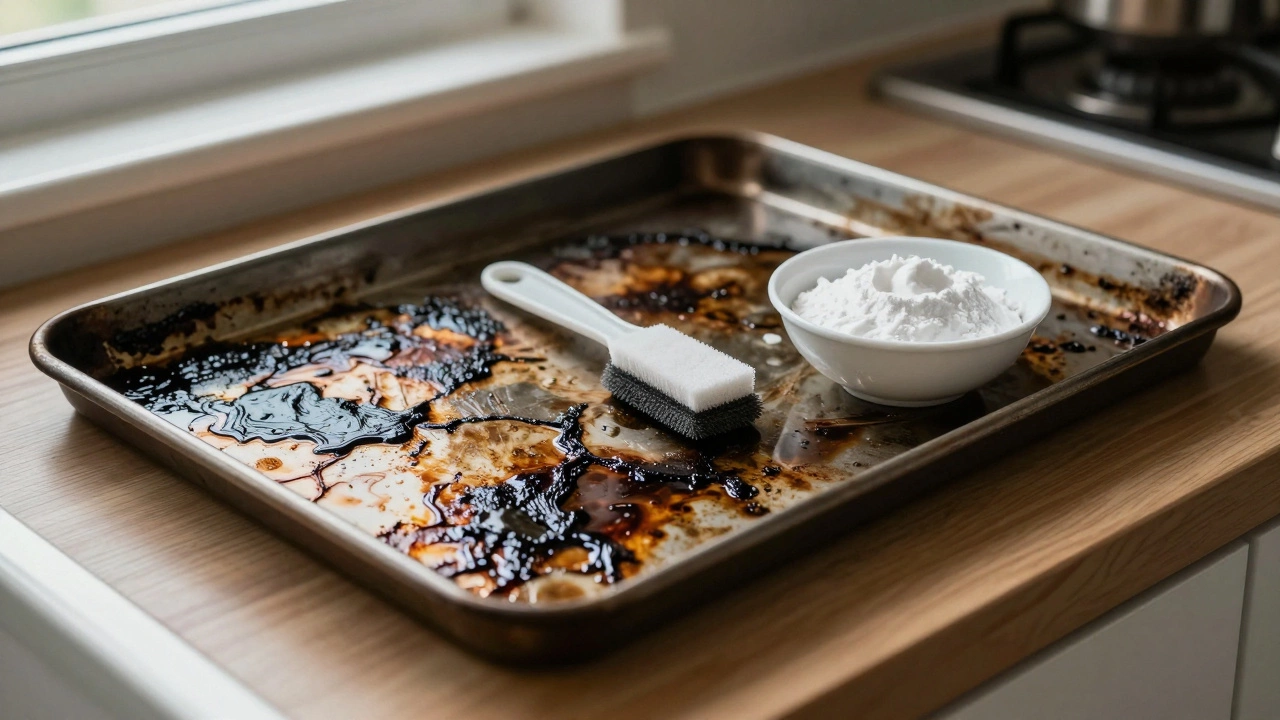Grease Removal Made Easy: Quick Tricks for a Spotless Kitchen
We’ve all stared at that black, crusty layer in the oven or on a stovetop and wondered if it will ever go away. The good news? You don’t need expensive chemicals or a professional to melt it off. With a few household items and the right technique, you can blast stubborn grease right out of your kitchen.
DIY Cleaner Recipes That Actually Work
First up, let’s talk ingredients you already have. Baking soda is a mild abrasive that lifts grease without scratching surfaces. Mix one cup of baking soda with enough warm water to form a paste. For extra power, add a splash of white vinegar – the fizz helps break down the oily film.
Another favorite is lemon juice. The natural acidity cuts through grease and leaves a fresh scent. Squeeze the juice of one lemon onto a damp sponge, then scrub the greasy spot. Rinse with warm water and wipe dry.
Step‑by‑Step: Removing Black Baked‑On Grease from an Oven
1. Cool the oven. Safety first – make sure the oven is completely off and cool to the touch.
2. Apply the baking‑soda paste. Spread a thick layer over the greasy areas. Let it sit for at least 30 minutes; the longer, the better – overnight works wonders.
3. Scrub gently. Use a non‑scratch sponge or a soft‑bristle brush. Move in circular motions; you’ll see the grime lift.
4. Rinse with vinegar spray. Fill a spray bottle with equal parts white vinegar and water. Spray over the paste; it will fizz and dissolve any remaining residue.
5. Wipe clean. Grab a damp cloth and wipe away the loosened grease. Finish with a dry towel to prevent streaks.
If the grease is especially thick, repeat the process. Each round chips away a little more, and before you know it the oven looks like new.
For stovetops, the same paste works, but you can add a few drops of dish soap for extra lift. Apply, let sit, then wipe with a damp rag. The result is a shine without greasy streaks.
Remember to protect your hands with gloves when scrubbing, especially if you’re using vinegar or lemon. And always ventilate the area – even natural cleaners can produce a strong smell.
These methods are not only cheap, they’re also eco‑friendly. You avoid harsh chemicals that can irritate skin or damage the environment. Plus, you’ll save money on pricey commercial degreasers.
Got a greasy grill pan? Sprinkle salt over the pan, add a bit of oil, and use a paper towel to rub – the salt acts like sandpaper, pulling grime off without scratching the metal.
Finally, keep grease from building up in the first place. Wipe spills right away, and run a quick wipe‑down with a damp cloth after each cooking session. A little maintenance goes a long way.
With these simple steps, grease removal stops being a nightmare and becomes a quick, satisfying chore. Your kitchen will stay cleaner, and you’ll feel proud of the results you achieved without any fancy products.

How to Remove Baked-On Grease from Oven Trays
Learn how to remove baked-on grease from oven trays using baking soda and vinegar-no harsh chemicals needed. A simple, safe, and effective method that works every time.
Read More
Does Baking Soda and Vinegar Remove Grease? Kitchen Science Facts and Best Practices
Can baking soda and vinegar really dissolve grease? Discover the science behind this combo and learn practical tips to tackle grease using these common kitchen staples.
Read More